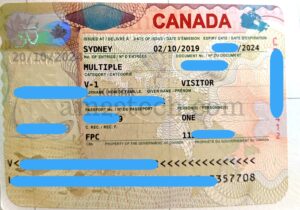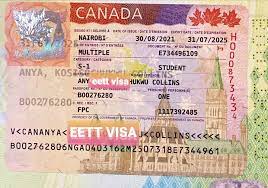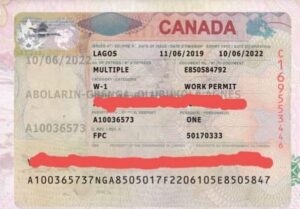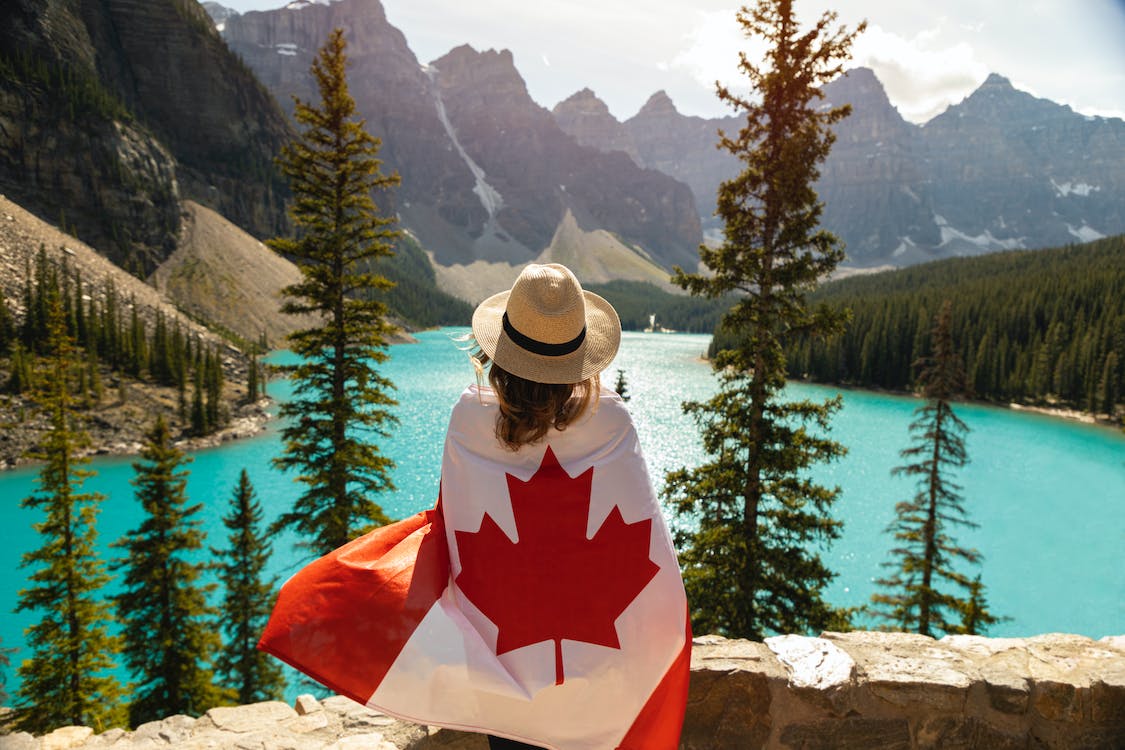Canada, a highly developed country in North America, welcomes travelers, students, workers, and immigrants from across the globe. The process of obtaining a Canada visa application process involves several steps, categories, and considerations tailored to individual purposes of travel or immigration.
Understanding Canada Visa
A Canada visa is an endorsement on your passport, permitting entry into the country for various purposes. It grants lawful travel and residence, either temporarily or permanently, depending on the type of visa obtained. Despite holding a visa, entry into Canada ultimately rests with the Border Services Officers (BSO), who assess your eligibility and intentions.
Who requires a Canadian visa?
Citizens from around 148 countries lacking visa exemptions or Electronic Travel Authorization (eTA) agreements with Canada must obtain a visa for entry. Depending on the purpose, there are specific visa types catering to tourists, students, workers, or immigrants.
Diverse Categories of Canadian Visas
Temporary Canada Visas
- Canada Tourist Visa: For tourism purposes within the country.
- Canada Super Visa: Enables extended visits for parents or grandparents of Canadian citizens or permanent residents.
- Diplomatic and Official Visa: For foreign officials and diplomats on official duties.
- Business Visa: For individuals or groups conducting business activities in Canada.
- Visa to Give Birth in Canada: For individuals intending to give birth in Canada.
- Canada Student Visa: Facilitating studies in Canadian universities.
- Canada Temporary Work Visa: Allows temporary work for up to 6 months.
- Temporary Residence Permit: For temporary stays when not eligible for a Temporary Resident Visa (TRV).
- Working Holiday Visa: Allows young people from 30 countries to work and travel in Canada.
Permanent Canada Visas
- Immigrant Investor Program: For investing in the Canadian economy.
- Startup Visa Program: For entrepreneurs contributing to the economy.
- Self-employed Persons Visa: For individuals skilled in business, culture, or athletics.
- Quebec-Selected Skilled Worker Program (QSWP): Focuses on specific occupations in Quebec.
- Family Sponsorship Program: Allows spouses and dependent children of Canadian citizens or permanent residents to immigrate.
- Live-in Caregiver Program (LCP): For caregivers of elderly or disabled individuals.
Express Entry Visas
- Federal Skilled Trades Program (FSTP): For qualified tradespeople.
- Federal Skilled Worker Program (FSWP): For individuals with occupations in demand.
- Provincial Nomination Programs (PNP): Target semi- or low-skilled workers.
- Canadian Experience Class: For temporary students or workers transitioning to permanent residency.
Applying for a Canada Visa
The application process varies based on the type of visa.
- Eligibility Assessment:
- Access the Immigration tab on the Government of Canada website.
- Fill out the online questionnaire to determine your eligibility.
- Receive a set of instructions, visa details, and a reference code if eligible.
- Creating an Online Account:
- Use online banking credentials or create a Government of Canada login.
- Enter banking details for the visa fee payment.
- Document Compilation:
- Utilize the reference code to initiate the visa application.
- Submit all required documents through the online system.
- Payment of Visa Fees:
- Pay the visa fees online based on the specific visa type applied for.
- Wait for application verification and processing initiation.
- Processing of a Canadian Visa:
- Wait for two or more weeks for processing by the Canadian Embassy.
- Expect potential requests for additional documents, biometrics, or interviews.
- Passport Submission:
-
-
-
- Upon successful processing, submit the passport to the Embassy with the applicable processing fees.
- Await visa stamping and the return of the passport.
-
-
Post-Visa Application Process
- Entry into Canada: Present your passport and documents at the point of entry.
- Border Services Officers’ Assessment: The final decision regarding entry rests with these officials.
How long does it take for Canadian visa processing?
The processing duration for a Canadian visa varies, typically ranging between two to four weeks or even longer. Initiation of the process begins upon receipt of the complete application by Canadian authorities. Delays might occur if additional documents are requested.
Can My Family Abroad Assist Someone to Obtain a Canada Visa?
Information for the person writing the letter of invitation
Yes. Individuals who have family or friends in Canada and are desiring to invite family or friends can provide a letter of invitation for the invitee. The letter should entail comprehensive details about the invitee and the inviting individual, including contact information, relationships, accommodation arrangements, financial provisions, and more. Although not a guarantee for visa approval, this letter can support the application process.
How can I extend my stay in Canada?
To extend a stay in Canada, one must apply for a Visitor Record or visa extension at least 30 days before the visitor visa expiration. It’s essential to note that a visitor record is applicable only within Canada. Attempting to re-enter Canada with a visitor record after leaving is not permitted. Overstaying visas might lead to status restoration or necessitate departure from Canada based on the duration of the overstay.
How Much Are Canada Visa Application Fees?
Visa fees for Canada vary depending on the type of visa sought. Typically, a standard Visitor Visa fee amounts to $CAN100, with additional charges such as processing and biometrics fees.
What would happen if I received a Canada visa rejection?
In the event of a visa rejection, re-application is permissible unless the rejection letter prohibits re-application. However, re-application is recommended only if the situation has changed or additional relevant information can influence a positive decision. Appeals for tourist visa refusals are not entertained, except for refugee or permanent residency applications processed by the Immigration Appeal Division (IAD).
Can I get refunds for rejected Canada visa applications?
Canada visa fees are non-refundable once the application begins processing. However, under specific circumstances, refunds might be applicable for certain fees like the Right of Permanent Residence, Right of Citizenship, Open Work Permit, International Experience Canada (IEC), and Employer Compliance. The Government of Canada’s Immigration and Citizenship website provides guidelines for requesting refunds.
Can I apply for a Canada visa application from another country?
In cases where no Canadian embassy or Visa Application Center exists in the applicant’s country of residence, travel to another country for visa applications might be necessary. However, it’s crucial to apply within the jurisdiction relevant to the applicant’s legal residence. Additionally, visa applications from a country where the applicant holds legal residency might be permissible under certain conditions.
Do I need biometrics for the Canada Visa application?
Most visa applicants are required to provide biometrics (fingerprints and a photograph). The application submission triggers the requirement for biometrics, which are usually collected at a designated Canadian Visa Application Center. Fees and details regarding biometric submissions can be obtained from the nearest Visa Application Center.
What Does the Appearance of a Canadian Visa
A Canadian visa, displayed as a stamp on the passport, usually includes essential details like place of issuance, validity dates, number of entries allowed, document and passport numbers, visa category and type, and the visa holder’s name.
[Examples of how Canada visas look for visitors, workers, and immigrants are often available through official Canadian visa resources].

An example of what a Canada Visitor Visa looks like.

An example of what a Canadian student visa looks like.

An example of what a Canada Work Visa looks like.
In conclusion, navigating the process of obtaining a Canadian visa involves a comprehensive understanding of the various visa categories, application procedures, and specific requirements tailored to individual circumstances. From temporary visas for tourists, students, and workers to permanent residency pathways, Canada offers diverse opportunities for individuals seeking entry or immigration.

